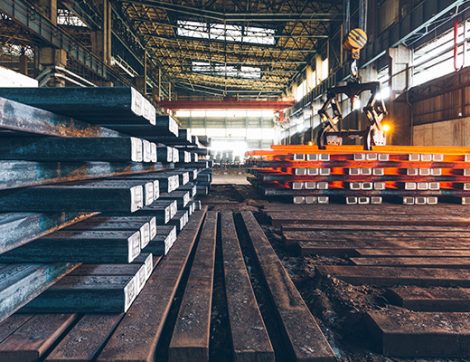-
Plan to explore Carbon Clean’s CycloneCC technology for at-scale implementation in steelmaking
Date posted:
-
-
Post Author
Tracey Biller
-

JSW Steel, India’s leading private sector steel company, carbon capture solutions provider Carbon Clean, and leading global resources company, BHP, are collaborating to accelerate deployment of carbon capture technology for steelmaking decarbonisation, following the signing of a joint study agreement between the parties.
In terms of the agreement, the parties will explore the feasibility of Carbon Clean’s CycloneCC modular technology to capture up to 100,000 tonnes per year of CO2 emissions – the largest scale CycloneCC deployment to date in steelmaking.
India is the world’s second largest steel producer and production is expected to double by 2030 as compared with 2023 figures.
In the light of increasing commissioning of Indian blast furnaces, all with decades of life ahead of them, it is essential that longer term near-zero decarbonisation routes are supported. Carbon capture, utilisation, and storage (CCUS) technology represents such a route both in steelmaking and in other hard-to-abate industrial sectors.
Capital expenditure and ongoing operating costs are amongst several challenges associated with the adoption of carbon capture technology in the steel industry. Another challenge is integrating new equipment into an existing operations site with space limitations.
The CycloneCC rotating packed bed (RPB) technology, in combination with Carbon Clean’s proprietary APBS-CDRMax solvent, aims to address these challenges by reducing total installed cost and the unit footprint by up to 50 per cent and using equipment ten times smaller than conventional carbon capture technologies.
The joint studies are expected to be completed during 2026, at which time the parties will consider installing CycloneCC at JSW Steel’s Vijayanagar site in India’s southern state of Karnataka. If the project is successful, JSW Steel intends to liquefy captured CO2 so that it can be sold locally.
Quoted in a press release issued by Carbon Clean, BHP’s Chief Commercial Officer, Rag Udd, said, “We are actively studying multiple pathways for steel decarbonisation, including through use of hydrogen and renewable power, but we recognise that the blast furnace route will likely remain a pathway for the production of steel, particularly within India. Supporting the development of key abatement technologies such as CCUS is therefore critical.”
